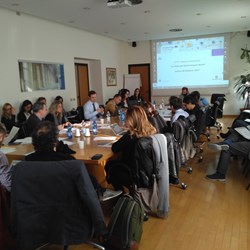 Thursday, October 26, 2017
Thursday, October 26, 2017
On 26th October, Finpiemonte and Comune di Pordenone organized a workshop in Torino titled “The challenge of Social Bond” addressed to national, regional and local authorities.
The aim of the event was to collect experiences and suggestions about SIB and specifically about cooperation between the public authority and third sector as well as to discuss whether the Italian system is ready to seize the opportunity of this new financial instrument.
Policy makers had the chance to better understand SIB and its process and, at the same time, to evaluate opportunities and challenges for every actor involved in this financial instrument.
The workshop started with an European study on “pay by results” and an “impact investing” instruments presented by Università Tor Vergata, followed by a focus on the global social impact agenda carried out by Human Foundation; a non-profit organization that promotes collaboration between business, government, social enterprises, to implement innovative solutions for social problems.
The focal point of the workshop was the difference between Italian and English context since in Italy the private sector is a generator of a social services development. Namely, the Italian public sector is still “fee for service” oriented and does not think in terms of outcome based commissioning. What is more, the Italian Public Procurement Code follows a very restrictive interpretation of Public Utility, which is mostly cost saving and not “social impact” oriented.
During the workshop was agreed that the main issue that needed to be solved was the necessity to create guidelines at a national level on how to measure the social impact and to elaborate a system of quantifying public savings.
The workshop was well attended and the participants actively expressed their interest in the topic. Also the representatives of the Ministry of Labour and Welfare, other regional governments and the National Association of Italian Municipalities were present, which enabled the transferability of the project on a high level and capacity building for social investing and social impact bond was increased.



















